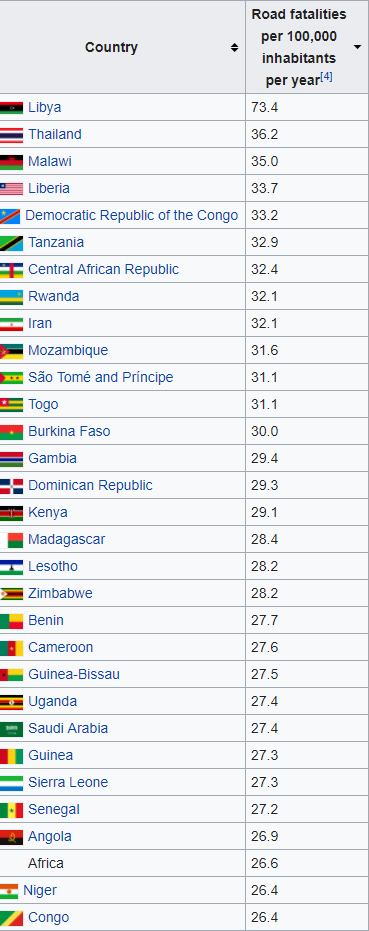I know it’s a Monday, but don’t get too stressed about five more days of commutes. You have it far better than others around the world.
In many other nations, commuting isn’t just stressful, it’s a significant threat to life. And whatever the cause of these commuter casualties, their high rates shine a light on harder lives.
Take what happened last Wednesday, when at least 30 people were killed after an overloaded ferry sank between Niger and Nigeria. Or what occurred the next day in India, when at least 22 people were killed after their boat capsized.
This speaks to something: In the West, mass drownings are few and far between, but in poorer nations they are a constant danger. That’s partly because poor governments can’t provide enough ferry services to avoid overcrowding and thus capsizing risks, but it’s also a function of working conditions. In most African nations, for example, if an individual does not make it to work on time, they will simply be fired. Due to longer working hours and sparsity of services, these individuals must also rely on ferries as a means of accessing their bare necessities.
As such, while they know the risks are great, they have no choice but to take those risks in order to survive. And sometimes the consequences are far worse than what we saw last week. In 2014, an overloaded Bangladeshi ferry sank and led to hundreds of drownings.
From a western perspective it’s easy to look at these events, shrug, and ask, why didn’t they wait for the next ship? Or why didn’t the authorities regulate against such dangerous practices? But such questions belie the true reality. In the end, when every shift at a job is the only way you can avoid starving, or pay for medical bills, you don’t have the luxury of taking precautions. And ultimately, the absence of strong institutions means that the government has little interest in applying rigorous enforcement of the rules.
Still, the danger of capsizing vessels is nothing compared to road traffic accidents.
According to a 2015 World Health Organization report, Americans are nearly 7 times less likely to die in a traffic accident than Libyans, nearly 3.5 times less likely than Thais, and 2.3 times less likely than South Africans. Even taking into account better U.S. medical services, the WHO data shows there’s a trend.

Namely, it proves that poorer nations are the ones with a far outsize risk of road traffic fatalities. I have seen this personally in Bangladesh. There, cars simply swerve in and out of one lane roads in order to skip ahead of traffic. Because there is no enforcement of traffic laws, and seeing as everyone is on a desperate timetable, otherwise insane driving practices are accepted.
For some, however, commuting is a constant blight. Take the train children of Bangladesh. As I noted last year, unable to access stable accommodation or education, many young children travel between carriages on Bangladeshi trains, seeking new places to find food or a job. But when they inevitably fall from the train, and are injured, these children are simply left to die. They know it, but they have no choice but to try and survive.*
So next time you commute, be grateful that you’re likely to reach your destination alive. In other countries, that expectation is always in doubt.
* Another reason why the U.S. should make sure we spend on aid programs that deliver sustainable benefits for those in need.
